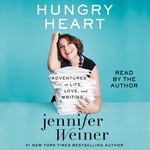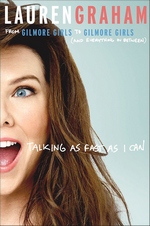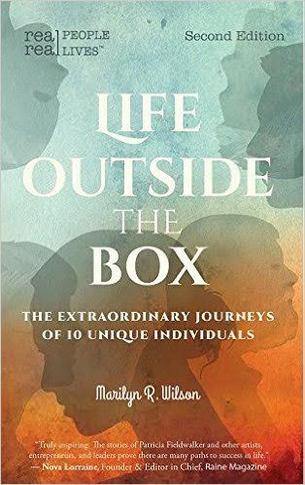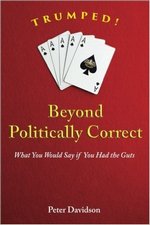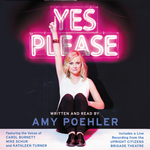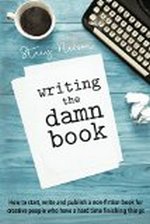 |
Writing The Damn Book: How to Start, Write And Publish A Non-Fiction Book For Creative People Who Have A Hard Time Finishing Things
by Stacy Nelson
Kindle Edition, 83 pg.
BadAss Publishing Co., 2016

Practical Magic for Alchemists Who Like to Play in the Esoteric Sandbox
by Erika Nall
(I had the privilege of reading this book before it was released to the masses.)
The “Who Is Your Reader?” section is the MOST IMPORTANT section. It stopped me dead in my tracks!
I’ve bought countless courses and trainings but something always felt off. I couldn’t quite put my finger on it. All of them had me “start with the end in mind.” I was painting these beautiful pictures of my days, my 3 months from now, my 1 year from now, and beyond. It was so yummy. It tapped into my superpower of visioneering. It satisfied my romanticism. It validated my idealism. Then I reversed engineered to create that in the present.
However, when it came to my readers and clients the “guru” always had me start at the beginning of their journey. “What are her pain points?”
EVERY. SINGLE. TIME. I start there my stomach clenches and my heart shrinks. Inside I feel small and powerless. I get confused and lack clarity. OUCH! It’s painful.
I can hear it now:
Guru: “Lean into your discomfort. Just push through it. This is good for you. This is an opportunity to grow.”
Me: “Um, I don’t think you understand this is not uncomfortable like my shoes are a little too tight or I have a bit of indigestion from the pepperoni pizza I just ate. This is killing me inside.”
Guru: “Well, that’s just a thought. Notice the thought. Let it go back from where it came. Back into nothingness.”
Me: “I don’t think you heard me. THIS IS LITERALLY KILLING ME INSIDE! I avoid death as much as possible thank-you-very-much.”
(And as an alchemist, I know I can excel in the dark art of manipulation to get what I want. I always felt like I went there when I started with pain. “I can help you. Or, better yet “I can save you.”)
Why do I die inside when I start with pain?
My reader is me. I am her. When I talk about her beginning, I am talking about my beginning. When I talk about her insecurities, I am talking about my insecurities. And believe me, they like to show up and be a part of the show anytime they can.
Now, I understand why the beginning is a terrible place to start. Brains are pretty clueless. Whatever it’s thinking, it perceives as reality. That’s its job. And, mine does it very well.
Now I understand that those sensations. That experience is also what happens when I am insecure.
When I wanted to share my message through writing, my self-assurance, my self-confidence, my self-trust was nowhere to be found. Frozen, I just stared at that incessant blinking damn cursor for hours as the insecurities played and had their fun in my head. Frustrated and feeling rather poorly about myself, I would give up. I’d walk out of my office thinking, “What’s wrong with me? How can I usually write so freely and unabashedly with great perseverance one minute, but not the next.”
I wrote the answer, “who is your reader going to BE at the end of the book?” (Honestly, I wasn’t sure if this was going to work.)
And, I felt it. For the first time I felt that what I wrote was coming from a deep place inside of me and not my head. I expected the sensation to be like a blast of, or at least a pulsating, bright light. (Well, that what I thought was suppose to happen when you are passionate and empowered.) Instead, my stomach was relax and I felt a gentle pressure across my chest. It was a constant glow and warmth like after the fire burnt up the firestarters -the tender and the kindling- and it’s just being a fire, doing what fires do. Sure there was an occasional popping of pitch, but I didn’t stop. My fingers just pounded a bit harder on the keyboard.
My breath deep and long. Every once in awhile tears would run down my face. My mind quiet. There was no judging. I just typed. I didn’t set a timer like I usually do to keep me on track. When I felt like I got up into my head, I paused, looked out the window and watched the birds for a little bit, took a few deep breaths, and went back to writing. When all that I had inside was out in black and white -unedited and raw- I looked at the clock and only 50 minutes had passed – talk about flow, baby.
I took a deep breath, exhaling slowly, coming back to my surroundings. Then my intuition said, “Is this making her BE EMPOWERED?” And, I cried.
Several times since then, I’ve tapped back into empowered and I’ve cried every time. Not because I am sad, or happy, or relieved because now I can feel the glorious ginormity of it. How badly, how passionately I want that for my readers AND for me.
You see, I was asking the wrong question. I was starting in the wrong place.
Now when I begin with the energetics of empowerment, I write within the place of security. My assurance, confidence, and trust will be front and center. And, when the writing gets hard and there is a call to perseverance, THIS is what will pull me through the challenges of spreading my message in whatever form I choose.
—–

by Peter Davidson
Kindle Edition, 116 pg.
Sweet Memories Publishing, 2016
Read: July 12, 2016

Let’s get this straight: this is not about being politically incorrect, it’s an instructional guide to being a boor, a lout, a cad . . .
I kept thinking: if I read on, I’ll get the joke, I’ll see the satire. But nope. Didn’t happen. It’s a shoddily written, cliché-ridden situational guide to being “brutally honest.”
I typically try to be thorough with these posts (especially if I’m not crazy about the book, if only to justify my problems and the time I spent reading it), but I’m not going to bother with this one. The only reason I didn’t toss this in a corner is that I didn’t think my Kindle could take it. Every second I spent reading it was a waste, it ruined my day plowing through this. I if read something as bad as this again in 2016, I may just shut this site down.
Disclaimer: I received this book from the author in exchange for this post.
—–

by Amy Poehler (Writer, Narrator),
with Carol Burnett, Seth Meyers, Mike Schur, Eileen Poehler, William Poehler, Patrick Stewart, Kathleen Turner
Unabridged Audiobook, 7 hrs and 31 mins
HarperAudio, 2014
Read: May 19 – 20, 2016

Amy Poehler’s memoir-ish, Yes Please has been on my “get around to it” to it list for quite a while, but I never seemed to until I started this whole audiobook at work experiment. I picked such a good one to start with, I’m actually glad I didn’t read it first.
Poehler interweaves comedy bits with the story of her life and career, starting with her early experiences in comedy and childhood friends, moving onto her start in improv and then on to SNL and Parks and Rec. Even when she’s being serious, she can’t help but be funny — while talking about her divorce, death, Haitian orphans, etc. you want that. She talks a lot about her two sons and sounds like a loving and devoted mother (if a bit twisted).
In addition to this, she talks a good deal about how to deal with the inner voice telling young(er) women (and, I assume, older) that they’re not perfect, that their physical appearance needs to be different or they’re not that worthwhile. As I listened to this, I wanted to play it for my daughter. When she talked about sex and drugs (not that much on the former, but enough), I lost a bit of that desire, but I still might.
It’s not just Poehler’s authorial voice that makes this work so well — it’s her actual voice, too. Poehler saying these wise words, confessing the details, sharing the stories herself, and not just some hired gun (as capable as they might be) elevates the project. Bringing in Patrick Stewart to read silly poems, Kathleen Turner to do the occasional line, her parents, Meyers to reminisce, Schur to read a list of alternate candidates for Leslie Knope’s name and talk about Parks and Recreation in general — were great moves, and a blast to listen to. I’m curious what those sections are like if you just read them, but probably not enough to go try. The last chapter is a recording of a live reading she did, the audience reaction and her playing to them added just the right touch.
I can’t believe I’m saying this, but don’t read the book. Listen to the audio. It’s just that good. Heartfelt, funny, and inspirational (and did I mention funny?) — it’s everything you want from Amy Poehler (shy of another season of Parks and Rec).
—–

|
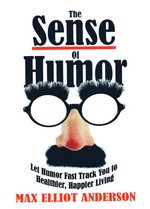 The Sense Of Humor: Let Humor Fast Track You to Healthier, Happier Living
The Sense Of Humor: Let Humor Fast Track You to Healthier, Happier Living



